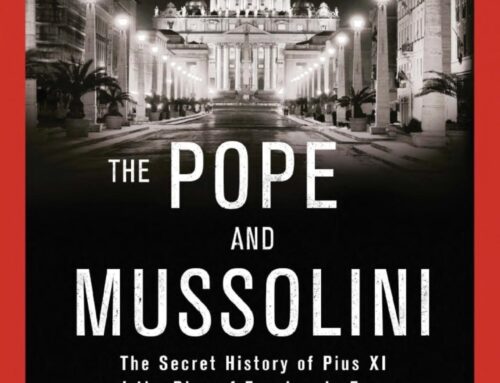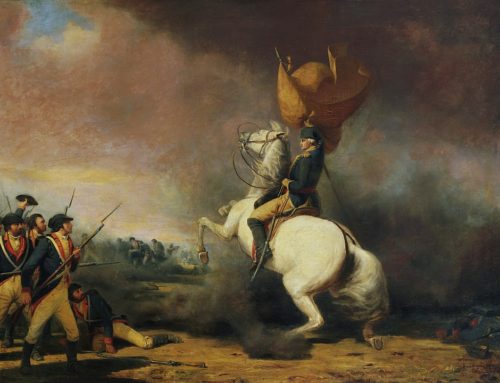“Let China sleep. For when China wakes, it will shake the world.”
–Napoleon Bonaparte
If Japan would have heeded his warnings, she would have avoided a pulverizing debacle during World War II.
Ironically, in defeat, Japan learned to true secrets to success. That is, through capitalism, Japan could become a great economic power by buying up mineral resources globally. Rather than wasting financial resources on building a military industrial complex, Japan focused after World War II on building up her industrial and financial infrastructure. Thus, she achieved in peace much more that she had ever dreamed of acquiring through martial prowess. In the meantime, America provided the “safety net” to allow Japan to focus on an unparalleled technological boom.
The alliance between Germany, Italy, and Japan that was formalized in the fall of 1940 ultimately led to the Japanese surprise attack on Pearl Harbor. Japan’s decision to caste her fate with Germany and Japan against Great Britain and the United States stemmed initially from ideological concepts evolved from her disappointment with territorial allocations decided by Great Britain, France and the United States under the Versailles Treaty of 1919 and the allies failure to “outlaw” racial discrimination against Orientals.
One of the ironies of the tri-partite pact, also known as the anti-communist pact, was that Hitler accepted the racial equality of Aryans, Mediterranean Italians and Japanese Orientals. When the real politic fit into Hitler’s global designs he could accommodate himself to some non-Aryan races, while continuing to despise Blacks, Slavs, and Jews. Hitler was such a nut about Jews that he had his photographer enlarge pictures of Stalin’s ears, because he believed that Jews’ ears had a peculiar shape. Hitler was relieved that Stalin was a pure Slav and not a Jew. On the other hand, Hitler must have been “blind” to the different physical features of the Japanese given his obsession with superiority of blond hair, blue eyed Aryans.
One would think that the racist Japanese would have in turn also held severe reservations about aligning themselves with Caucasians Aryans. To the Japanese, the Koreans and Okinawans were sub humans. Thus, was it not irrational for the Japanese who were led by their Emperor God to caste their fate with a completely different racial group?
While nobody has ever speculated on the “Final Solution regarding the Japanese” if Germany had prevailed, my own thoughts that ultimately the Japanese and Germans would have vied for global dominance similar to the Cold War between the United States and the Soviet Union.
In essence after 1919, Japan resented the land grab by France and Great Britain following the disintegration of the German and Ottoman Empire. To rectify their perceived unjust treatment, Japan decided that rather than accepting meager handouts such as letting Japan keep Korea, she felt that to obtain her status as a first-class regional power in Asia, Japan needed to grab territory rich in natural resources. Thus, she coveted British, French, and Dutch control of territories in her “perceived” areas of interest, especially since these colonies possessed oil, rubber, and other minerals necessary to support a modern twentieth century industrial state. After 1919 Japanese felt that the world was divided into the “halves and the halve nots.” For Japan to succeed, she had to ally herself with pariahs such as Germany who had been unfairly treated by the Allies. Stated differently, England, France and United States were comfortable with the status quo. This was anathema to the land Hungary Japanese. Why not? Great Britain controlled about one-third of the world’s land service, and France controlled about 20% of the world’s land service. Through the Monroe Doctrine, the United States had hegemony in North and South America.
The first major effort by Japan to alter the status quo was her invasion of Manchuria in 1931. Invading Manchuria created awful precedents for Japan that ultimately led to her risky attack on Pearl Harbor. That is, the United States was so firmly opposed to the Japanese invasion of Manchuria that our country took increasingly strident steps against Japan to reign in her imperial designs. On the other side, Japan’s appetite for Chinese territory was whetted by her initial military successes. That is, from 1931-1941, Japanese political and military leaders believed that 1) Japan required more territory in Asia, including Indonesia and Malaysia to guarantee their raw material requirements 2) Japan felt that her long run best interests could be leveraged by an alliance with the victorious Italians and Germans rather than Great Britain, France, and the United States, 3) Japan’s manpower and financial sacrifices in China required more militancy in order to justify the “lost souls.” In essence, the more territory Japan seized in China resulted in more deaths and financial sacrifices on the part of both the military and the Japanese civilian population. The terrible consequence of war is moderates become powerless and voiceless because the civilian population naturally becomes radicalized over time. Moreover, controlling China with its huge land mass and large population meant a disproportionate allocation of Japanese manpower. China became a bottomless pit that not only sucked up scarce Japanese resources, but alienated the Western powers. Military historians have pointed out that the Achilles Heel of Japan’s Pacific Strategy was her misallocating some two million troops to mainland Asia, an unsupportable number given the incredible geographical challenges of maintaining hegemony over the geographical challenges imposed by the enormous distances involved in the Pacific Ocean.
Why did not Japan remain neutral in World War II?
Japan felt that she could not afford to sit on the sidelines while Germany and Italy carved up Europe and Asia. In essence, a neutral Japan could not prevent Germany from seizing the Asian colonies of France, the Netherlands, and Great Britain. In a nutshell, the tide of events favored taking the European colonies of beleaguered European combatants.
Barbara Tuchman wrote a fascinating book, called March of Folly. In this book she cited many examples of needless wars or suicidal policies that led to debacles by leaders—Papal corruption leading to the Reformation, English goading Americans into the American Revolution and lastly the Vietnam War. In all three of these tragedies, bright articulate thinkers pointed out the fallacies of prevalent policies. In the case of Japan, many of her military leaders recognized that America was an industrial powerhouse that at best could be wounded, but certainly not defeated. Stated differently, realistic Japanese leaders felt that the best case for Japan was to “stun” America, and therefore force the United States to acquiesce to Japanese seizure of parts of China, Dutch East Indies (Indonesia) and Malaysia. However, Japan’s paucity of resources, especially oil and steel prevented any hopes of victory over the United States in a protracted war. Some Japanese pessimists pointed out that Japan possessed only one year’s supply of petroleum and that American industrial production would create an arsenal of democracy that would outstrip Japan’s industrial productive capacity.



